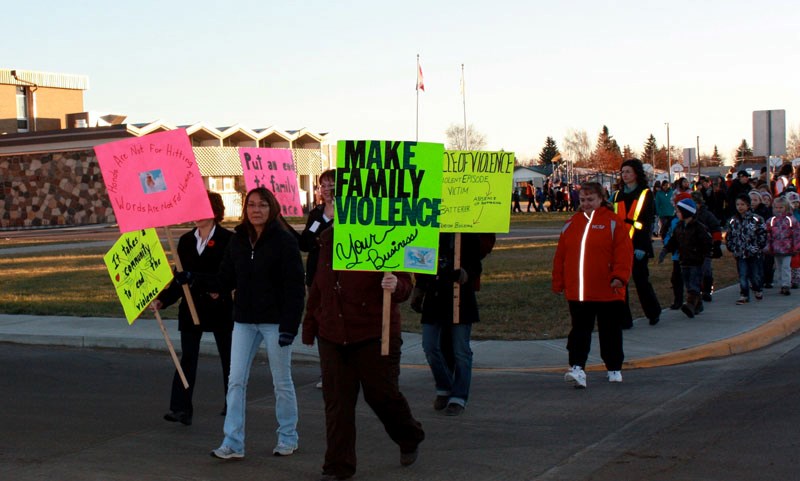Julie hasn’t seen her daughter in two weeks, a situation that brings tears to her eyes. But, with the support she has from the staff at St. Paul and District Crisis Association, she’s embarking on a mission to improve her life and reunite with her child.
Julie (not her real name) is from St. Paul, and says she was aware that the community had a women’s emergency shelter. “I just never thought it was a place I’d have to go.”
But she says after 18 years of putting up with physical, emotional and mental abuse from her common-law husband, she reacted. A recent domestic violence situation with her husband saw her charged and thrown in jail for a week, something she calls the “most terrifying experience” in her life. After her release, she had no idea where to turn.
“I was really, really scared to come here,” she says. But after four days of receiving support and care from the crisis workers, she finds herself glad she took the step to ask for help. “These people are awesome. They don’t judge me; they listen to what I have to say. I’m glad I’m here.”
Hardest for Julie is the separation from her child. “I miss my daughter,” she says, her voice cracking with emotion. Among her restrictions is to have no contact with her child. But that’s just another motivation to improve her circumstances; Julia’s plans once her stay at the shelter is over include going to see Alberta Alcohol and Drug Abuse Commission and getting child welfare to assess the family’s home life. She believes her husband is an alcoholic, but at this point, she still doesn’t know if she can leave him, noting he’s an “addiction” for her.
November is Family Violence Prevention Month, so the Crisis Association is once again promoting recognition of domestic violence, with a Walk of Hope it led on Nov. 2, and a fundraising carnival for families on Dec. 5, called the Festival of Hope.
Brandy, a crisis worker, explains that the association is keen to promote itself and remove the stigma associated with accessing its shelter services.
The majority of the clients who access the shelter are aboriginal, and being aboriginal herself, Brandy says she understands a bit more about their circumstances. She knows, both from her experience and her training as a social worker, that family violence moves in cycles, and that children who grow up with abuse are more likely to become abusers themselves.
Although she never tells women that their husbands are bad people, she does try to help them realize that the relationship is not healthy, and that if the man is not willing to work on changing the patterns of abuse, the woman has to take charge of her own life, or risk their children growing up thinking it’s OK to hit their partners.
“It’s teaching them we can’t change anybody but ourselves,” says Brandy. In the end though, the women have to make their own decisions. “We try to support them in their choices and leave (our) personal judgment out of it.”
While it can be frustrating to stand back and watch women return to the pattern of abuse, or to watch as they are again and again victimized, occasionally, Brandy sees positive stories, such as a woman managing to start a new life for her children and herself.
“It’s really nice to see that happy ending – we don’t see a heck of a lot of that,” she says.
The shelter offers a safe place for up to 18 clients, women and their children, to come and stay for up to 21 days, receiving family violence education, counselling, support and help to plan for the future. There are limited resources in the community, and few affordable housing options for the women if they do choose to leave their partners, making crisis workers’ jobs more difficult, notes Brandy. But there are rewards to the work too.
“Each time you see one of these women grow, even just a little bit, that’s rewarding,” she says, adding it’s also reassuring to see the children playing happily in a safe and secure environment. In the end, what comes out of each women’s stay is up to them – “It’s what they’re willing to do.”
For Julie, at this point, she’s willing to make whatever changes are needed to get back to her child. When asked what she sees in her future, she is honest. “I don’t know yet. My future’s getting home, getting back to my daughter and my family and trying to do the best I can.”



